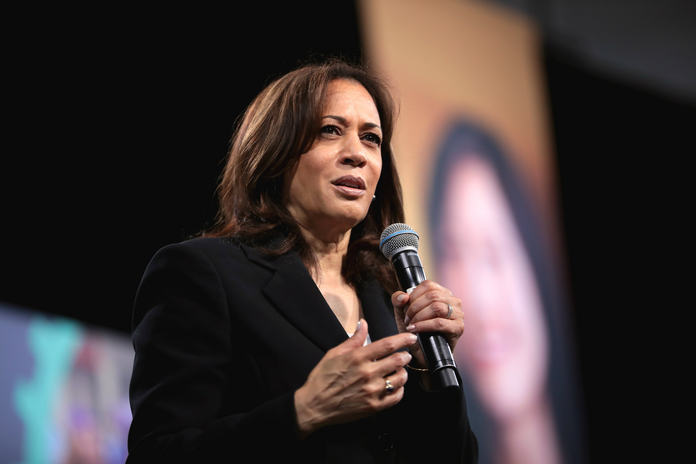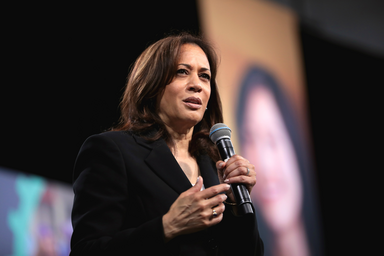This summer has been full of political campaigning both domestically and abroad. But perhaps more importantly this summer has been dominated by one word: ‘Brat’.
Charli XCX’s sixth album entitled ‘Brat’ soared to the top of the music charts and was even shortlisted for the prestigious Mercury prize. Its domination was also clear on TikTok where the hashtag ‘Brat’ alone reached 1.3 million mentions.
Now you might be thinking, ‘what on earth do these two things, elections and ‘Brat’, have to do with each other?’ The carefree vibes of ‘Brat’ and the stuffy nature of politics don’t really seem to mesh well together. Well, here I am to prove that wrong! Today I present a theory to you: an electoral campaign can be ‘Brat’, but a subsequent government from that same campaign can never be ‘Brat’. First, I will outline what ‘Brat’ has been taken to mean. Then I will address why a campaign can be ‘Brat’, and finally why a government can’t be.
1. What is Brat?
The traditional connotations of ‘Brat’ was not a popular one, usually referring to a badly behaved child. So why would people want to be like this? Well, Charli XCX’s version of ‘Brat’ is more focused on non-conformity and unapologetic boldness.
In her own words the singer personified ‘Brat’, telling the BBC it was represented by a person with “a pack of cigs, a Bic lighter and a strappy white top with no bra”. As the phenomenon grew it became more than just a line in one of XCX’s songs. It was a vibe, a mood, a descriptor, and a way of life. Being unbothered about staying sincere but also allowing yourself to have a laugh when faced with serious stuff.
The aspects of ‘Brat’ that are most important for us today are the unapologetic boldness and bluntness, its playful defiance and light-hearted feel. While political leaders haven’t been wondering around in “strappy white tops,” they do seem to have been embracing this concept, either on purpose or accidentally.
2. Why can campaigns be ‘Brat’?
The two main campaigns to focus on for my theory are the Harris-Walz Democratic Campaign in the US election and Sir Keir Starmer’s Labour campaign in the UK.
What stirred this thought in my head was when Charli XCX herself weighed in on the US election. Things had not been going well for the Democrats with an elderly President Joe Biden as their candidate. When Biden announced he would step back from the nomination, Vice President Kamala Harris was assumed to be the nominee. I like to think the seal of approval from Charli herself, in the form of a tweet simply saying, “Kamala is Brat”, really clinched the nomination for Harris. Since that endorsement, the Harris campaign rebranded, using the striking lime green and font of the album, and embraced the boldness that came with the mantel of ‘Brat’. Harris’ signature mix of class and well-placed sass has been on full display throughout all her media events and rallies. It was especially obvious in her debate with Republican nominee former president Donald Trump when she provided us with many a meme-able face of disbelief whenever Trump came out with some new outlandish claim.
My favourite ‘Brat’ moment of Harris’s campaign thus far was her appearance on the Call her Daddy Podcast. In response to Republican Arkansas governor Sarah Huckabee Sanders’ comments about Harris’s apparent lack of things to keep her humble the VP replied, “I don’t think she understands that there are a whole lot of women out here who, one, are not aspiring to be humble”.
The ‘Brat’ ness has even extended to Harris’ VP Governor Tim Walz, an endearing midwestern character who has been marketed as America’s dad. Following the bluntness of the ‘Brat’ approach, Walz said what many people were thinking, calling Trump and his running mate JD Vance “weird”. His chaotic character shows off ‘Brat’ quirkiness and his plain-speaking jabs typify ‘Brat’s unapologetic honesty.
Now let’s look at the UK’s most recent electoral cycle. How were the parties embodying ‘Brat’ here? This being the first election I could vote in I was understandably very excited to see what the parties were doing to appeal to me, both policy and campaign wise. Young people have often been accused of being apathetic towards voting, but I argue that this apparent disinterest towards voting mainly comes from the feeling of powerlessness the youth feel, the lack of policies aimed at improving their lives and their general alienation from the election process. But this time felt different. It seemed that Labour, the Liberal Democrats, and the Greens were really trying to get the youth out to the polling stations in more unique ways. They had fun in their refusal to accept another five years of Tory rule, referencing their own imperfections but arguing they were better than the blue option. This ability to have fun on the campaign trail has been utilised to attract young people to parties’ causes. That’s not to say that many young people are not passionate about politics on its own, I would include myself in that category, but it is nice when parties try to meet us on our level, relating to us in ways that are specific to our lives.
For example, all the parties utilised TikTok to get to their youngest possible voters. Already this feels very ‘Brat’ given the success the album found on the platform. The refined and highly polished media releases were benched in favour of trends and silly jabs. I found myself giggling away at all the parties attempts at TikTok’s, although some were slightly painful watches! The defiance of normal media approaches was refreshing, and while the six weeks were still a bit of a slog, everyone could enjoy the politicians who tried to not take themselves too seriously (Ed Davey, I’m looking at you!).
3. Why can’t a government be ‘Brat’?
So, why can’t a government be ‘Brat’? If a campaign that one could deem as ‘Brat’ goes on to form the government, surely that ‘Brat’ quality would carry over? I believe it boils down to a simple matter; campaigns are about hope, governments need to be about realism. Think of a campaign as a sales pitch, you need to get investors (voters) excited about what you’re selling so they will give you backing (votes). Once you have secured this then the pressure comes to execute these plans. Governments need to be polished and proper which is in direct juxtaposition to what ‘Brat’ was reportedly trying to do. The messy imperfect and fun-loving image is something I can see attributed to campaigns but not to governments.
Let’s look at the 2010 coalition, specifically at the minority partners the Liberal Democrats. ‘Cleggmania’ helped the party secure 57 seats but the buzz around the party and its leader quickly plummeted once they were in office; raising tuition fees certainly wasn’t very ‘Brat’! The new and exciting feeling that Nick Clegg captured on the campaign trail just could not be sustained under the pressures of government.
We can see the same with Sir Keir Starmer who has been racked by scandals even in his short time in office. If Labour’s campaign over the summer was ‘Brat’ some would say their performance so far in government has been a tad bratty.
Being ‘Brat’ is all about moving outside of the lines, refusing to conform, and living authentically but governments hoping to survive simply can’t do that. Like it or not all politicians are hamstrung by the game of politics and are not able to simply disregard the status quo. I believe Kamala Harris will be a good president not just because of all the qualities of ‘Brat’ she embodies. But when it comes to governing, we shouldn’t idolise politicians in the way that may be more acceptable when they are on the campaign trail. Being ‘Brat’ inspires joy, excitement, and a new perspective all of which are needed in campaigns. While these things are useful in government fundamentally, they take a back seat to the humdrum of legislation and diplomacy.
My wish for all politicians is to take what qualities they can from the ‘Brat’ ethos and try to keep it with them, be they in government or on the campaign trail. Who knows maybe one day we will all be voting for the bright green ‘Brat’ party.


